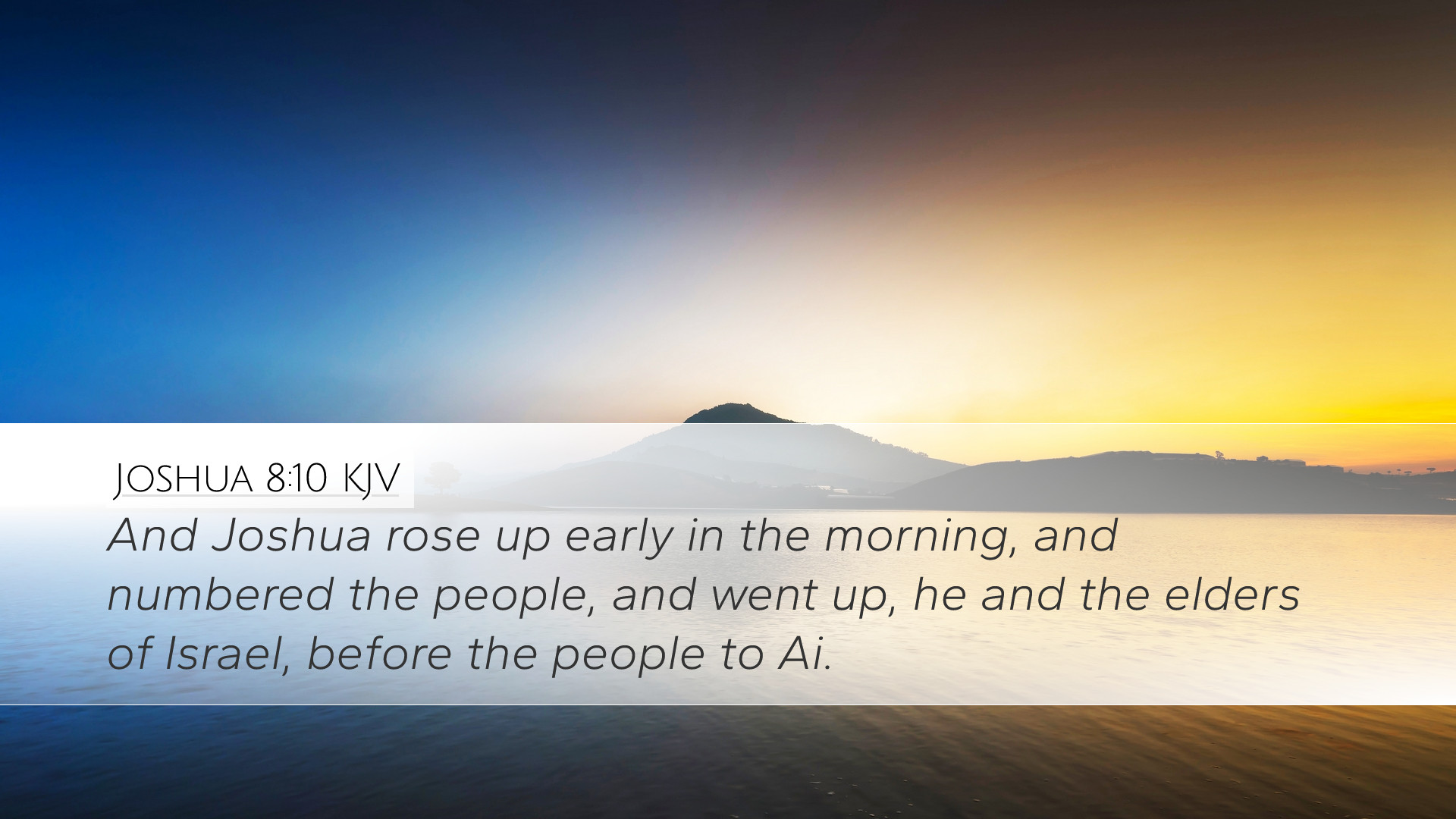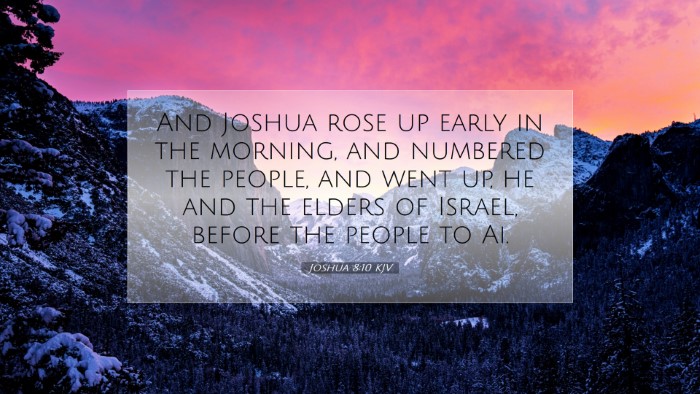Commentary on Joshua 8:10
Joshua 8:10 states, "And Joshua arose up early in the morning, and numbered the people, and went up, he and the elders of Israel, before the people to Ai." This verse marks a significant moment in the narrative of Israel's conquest of Canaan. Understanding its implications is critical for grasping the broader movement of the Israelite community as they claim the Promised Land.
Contextual Background
This event occurs after the sin of Achan, which had led to Israel's initial defeat at Ai (Joshua 7). The restoration of Israel's leadership and their approach to conquest is paramount in this chapter.
Insights from Public Domain Commentaries
Matthew Henry's Commentary
Matthew Henry emphasizes the leadership of Joshua as a model of diligence and commitment. He notes, "Joshua arose early in the morning..." signifies a sense of urgency and readiness among the leaders. Early morning often symbolizes a new beginning; for Joshua, it represented a fresh start after Israel's prior defeat.
Henry points out that the act of numbering the people implies preparation and organization. Leadership, according to Henry, is about mobilization. Joshua's decision to involve the elders reflects unity and collective responsibility within the leadership. He articulates that prior sins need rectification before pursuing God’s promises.
Albert Barnes' Commentary
Albert Barnes adds a historical dimension to Joshua's arising early. He discusses charisma in leadership, stating, "Joshua's prompt actions are pivotal in restoring Israel's morale." Barnes elaborates on the significance of the elders accompanying Joshua—they represent authority and communal leadership crucial for Israel's identity as a nation chosen by God.
Moreover, Barnes highlights the theological import: "Going up to Ai signifies obedience to God’s command." This emphasizes that God's plans require participation; it is not merely about divine will but also collaboration with human agency.
Adam Clarke's Commentary
Adam Clarke provides a linguistic analysis of the phrase "numbered the people." He suggests, "The numbering of the people was not just a census but a preparation for warfare." This points to a strategic maneuvering that was characteristic of ancient military practices and underscores the necessity of being well-prepared.
Clarke also references the moral ramifications of Joshua's actions. He interprets this moment as "restoration and recommitment to God's covenant." After Achan's sin, it was crucial that Joshua solidified the community's faith in God's overarching purpose. Clarke's insights serve as an essential reminder of holiness and purity in the pursuit of divine victory.
Theological Implications
The actions of Joshua in this verse highlight several theological themes:
- Leadership and Responsibility: Joshua exemplifies effective leadership by rising early and preparing the people for battle. This is a call to contemporary leaders to embody diligence in their spiritual responsibilities.
- Collective Unity: The mention of the elders signifies the importance of communal decision-making in the faith journey. Solomon’s wisdom further illustrates that harmony among leaders promotes national strength.
- Obedience to God: The act of going to Ai is a direct response to God’s instructions, illustrating that true success and victory come from obedience to divine commands.
- Preparation for Redemption: After the shame of defeat at Ai and Achan's sin, this passage signifies hope and the possibility of redemption through obedience and faith.
Conclusion
Joshua 8:10 serves as a microcosm of Israel’s broader journey in obedience to God. It reflects key aspects of leadership, community, and preparation that remain vitally relevant in today's context. For pastors, students, theologians, and Bible scholars, the insights derived from this verse challenge contemporary practices of faith and highlight the prophetic call to act in unity under God’s divine guidance.


